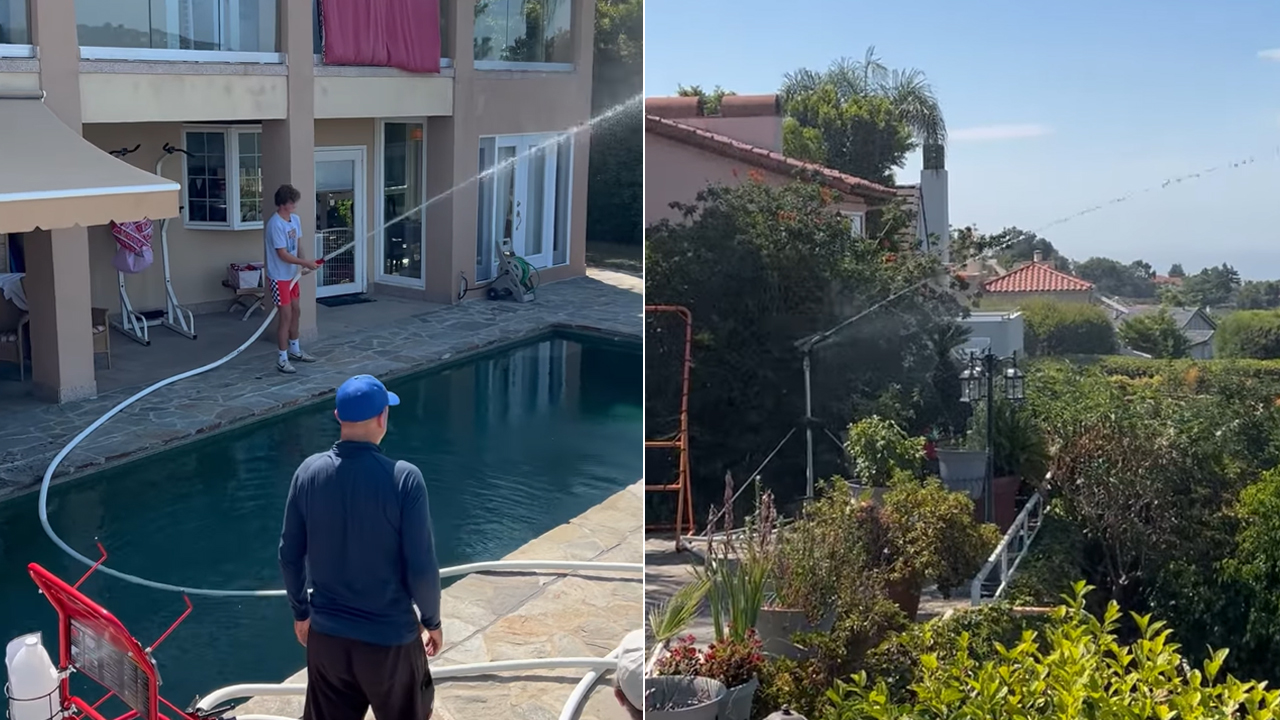
In the wake of one of the most devastating fires in recent memory, the home of Gene and his son Patrick Golling in the Palisades Highlands neighborhood is one of the few that survived.
While many in their community lost everything, the Gollings attribute the preservation of their property to two critical factors: clearing brush and an unconventional watering system powered by a homemade pump.
The Gollings’ 20,000-gallon swimming pool was drained to serve as a vital water source when the Palisades Fire threatened their neighborhood earlier this week.
The system, which uses a water pump powered by a Honda engine, was installed by Gene Golling last summer after he saw an online advertisement for the equipment. Costing just under $3,700, it was a precautionary measure.
“I envisioned this being burning,” Gene Golling said, reflecting on his decision to purchase the system. “I said to myself, this is a catastrophe to happen.”
Though the Gollings couldn’t have predicted the fire’s scale or proximity, they had already tested the system months earlier. In the event of a fire, the pump would allow them to use water from their pool to douse the surrounding area.
The system worked as planned. On Tuesday, as the fire advanced, the Gollings ran the system for 10 hours straight, soaking the hillside around their home.
“When we came back on Thursday, we were so shocked to see this tree that had caught fire and this hill below,” Patrick Golling said, describing the fire’s path through their neighborhood. “That’s when it occurred to us, if this wasn’t soaking for five hours, that the fire would have lit up and burned everything.”
The Gollings’ home, along with a handful of others in the area, is among the fortunate few to have survived the blaze. Patrick Golling expressed his empathy for their neighbors, many of whom were not so lucky.
The family emphasized the importance of preparation for future fires.
“People should be better prepared for future fires,” Patrick said. “Fires aren’t going anywhere.”
The Gollings hope their experience can serve as a lesson for others in fire-prone areas.
The system they installed may not be affordable for everyone, but there are other measures homeowners can take. In addition to their water system, the Gollings moved patio furniture away from their home and cleared dead vegetation from their property.
For those without a pool, they recommend investing in water storage tanks that can be connected to a sprinkler system, ensuring that valuable water resources are not depleted while firefighting efforts are underway.
While the Gollings’ story offers a glimmer of hope, it also highlights the harsh reality of living in wildfire-prone areas. As climate change intensifies the risk of such devastating fires, preparedness may make the difference between survival and loss.
